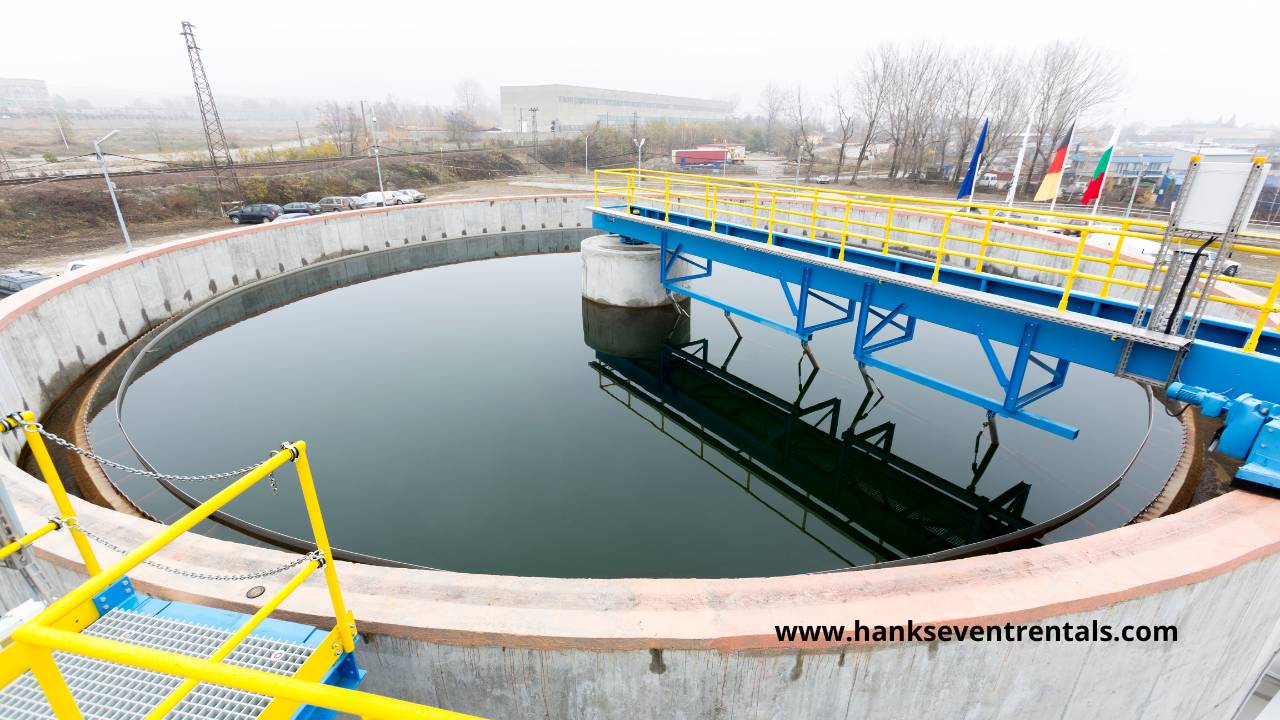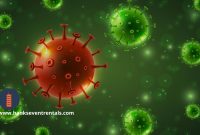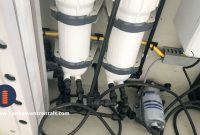10 Powerful Water Treatment Methods for Industrial, Commercial, and Residential Use
Water is an essential resource in every aspect of life. Whether it’s used for drinking, industrial processes, or commercial applications, ensuring its purity and safety is critical. Different environments—industrial, commercial, and residential—require various water treatment methods to address their specific needs. In this comprehensive guide, we will explore the top 10 water treatment methods that can be applied in different contexts, explaining how each method works and why it is effective.
1. Filtration Systems: A Basic but Crucial Water Treatment Method
Filtration is one of the most basic and widely used water treatment methods across all sectors. It involves passing water through various filters to remove contaminants such as sediment, bacteria, and chemicals.
How It Works
Water passes through multiple layers of media—like sand, gravel, or carbon—that trap and remove different impurities. The type of filter used depends on the specific contaminants that need to be addressed. For example, carbon filters are excellent at removing chlorine, while sand filters are used to eliminate large particles.
Application
- Industrial: Often used in large-scale water treatment plants to filter raw water for processing.
- Commercial: Common in businesses like restaurants and hotels to ensure safe drinking water.
- Residential: Filtration systems are often installed in homes to purify drinking water or soften hard water.
Advantages
- Simple to install and maintain.
- Effective in removing a wide range of impurities.
- Affordable for both small-scale and large-scale use.
2. Reverse Osmosis (RO): The Gold Standard for Water Purification
Reverse Osmosis (RO) is one of the most efficient water treatment methods available today, commonly used for both commercial and residential purposes. It forces water through a semi-permeable membrane that removes up to 99% of dissolved salts, bacteria, and other harmful contaminants.
How It Works
The water is pressurized and passed through a specialized membrane. The membrane only allows pure water to pass through, trapping larger molecules and impurities on the other side.
Application
- Industrial: Used in industries like pharmaceuticals, electronics, and food processing where ultra-pure water is necessary.
- Commercial: Found in large-scale water bottling plants and purification systems for restaurants.
- Residential: RO systems are installed under sinks or as part of whole-home purification systems to ensure safe drinking water.
Advantages
- Removes almost all contaminants, including heavy metals and pathogens.
- Can be used in various settings from small homes to large industries.
- Produces high-quality, clean water.
3. Ultraviolet (UV) Water Purification: A Chemical-Free Solution
UV water purification is a chemical-free way to kill bacteria, viruses, and other pathogens. It is commonly used alongside other filtration systems to provide an additional layer of protection.
How It Works
Water passes through a UV light chamber where it is exposed to UV rays. The UV radiation disrupts the DNA of microorganisms, rendering them harmless.
Application
- Industrial: Used in food processing and pharmaceutical industries where water must be free of any biological contaminants.
- Commercial: Frequently used in hotels, hospitals, and restaurants to purify drinking water.
- Residential: Homeowners can install UV systems in their water supply to ensure pathogen-free drinking water.
Advantages
- Kills 99.99% of bacteria and viruses without chemicals.
- Easy to install and requires little maintenance.
- Eco-friendly and leaves no chemical residues in the water.
4. Activated Carbon Filtration: Efficient Removal of Chemical Contaminants
Activated carbon filtration is an effective method for removing chlorine, organic chemicals, and odors from water. This method is commonly used in combination with other water treatment systems.
How It Works
Activated carbon attracts and binds contaminants as water passes through. The porous structure of the carbon gives it a large surface area to trap chemicals and organic compounds.
Application
- Industrial: Used in industries such as manufacturing and food processing to remove chlorine and other chemicals.
- Commercial: Often used in water coolers and filtration systems in offices, restaurants, and cafes.
- Residential: Activated carbon filters are frequently installed in home water filters to improve taste and odor.
Advantages
- Excellent at removing unwanted tastes and odors.
- Improves the overall quality of drinking water.
- Affordable and easy to replace filters.
5. Chemical Coagulation: Effective for Large-Scale Water Treatment
Chemical coagulation is a widely used method in industrial and municipal water treatment plants to remove suspended particles, oils, and other contaminants.
How It Works
Chemicals like alum or ferric sulfate are added to the water. These chemicals cause small particles to clump together, forming larger particles that can be easily filtered out.
Application
- Industrial: Used in large-scale plants to treat wastewater from factories and manufacturing processes.
- Commercial: Employed in commercial wastewater treatment plants to clean large volumes of water.
- Residential: Rarely used in homes but is part of the municipal water treatment process before it reaches residential areas.
Advantages
- Effective in removing a wide range of contaminants.
- Can handle large volumes of water.
- Essential for pre-treating water before other purification processes.
6. Ozonation: A Powerful Oxidation Method
Ozonation is a method that uses ozone gas to treat water by oxidizing organic and inorganic compounds, including bacteria and viruses. It’s commonly used in industrial and commercial settings for its efficiency.
How It Works
Ozone gas is injected into water, where it breaks down contaminants through oxidation. It is highly reactive and works quickly to eliminate microorganisms and chemical compounds.
Application
- Industrial: Used in bottling plants, breweries, and pharmaceutical industries for sanitizing water.
- Commercial: Common in swimming pool sanitation and water purification for hotels.
- Residential: Rarely used in homes, though some high-end water purification systems use ozone.
Advantages
- More powerful than chlorine for disinfection.
- Leaves no chemical residues in the water.
- Environmentally friendly as ozone reverts to oxygen after use.
7. Ion Exchange: Softening Hard Water
Ion exchange is a popular method for water softening, especially in areas where water has a high mineral content (hard water). It is also used in some industrial applications to purify water by removing dissolved ions.
How It Works
In ion exchange systems, hard water passes through a resin bed that contains sodium or potassium ions. These ions swap places with the calcium and magnesium ions in the water, softening it.
Application
- Industrial: Used in boilers and cooling towers to prevent scale buildup from hard water.
- Commercial: Found in commercial water softening systems used in hotels, laundries, and restaurants.
- Residential: Home water softeners are based on ion exchange technology to reduce the hardness of water.
Advantages
- Effective in softening water and preventing scale buildup.
- Improves the lifespan of appliances and plumbing.
- Reduces soap and detergent use.
8. Distillation: Producing Pure Water Through Evaporation
Distillation is a water treatment method that involves boiling water to produce steam, which is then condensed back into liquid, leaving behind impurities. It’s one of the oldest methods of water purification and is still used in specific industries.
How It Works
Water is heated until it turns to steam. The steam rises, leaving contaminants like minerals, bacteria, and heavy metals behind. The steam is then cooled and condensed into clean water.
Application
- Industrial: Used in laboratories and manufacturing plants where highly purified water is essential.
- Commercial: Sometimes used in commercial water purification systems but is less common due to energy costs.
- Residential: Home distillation units are available for those who need pure water for drinking or cooking.
Advantages
- Produces ultra-pure water.
- Effective at removing a wide range of contaminants.
- Can be used to treat saltwater (desalination).
9. Sedimentation: Natural Water Clarification
Sedimentation is a natural water treatment process often used as a preliminary step in both industrial and municipal water treatment systems.
How It Works
Water is allowed to stand in a basin or tank, and over time, heavier particles settle to the bottom. The cleaner water on top is then siphoned off for further treatment.
Application
- Industrial: Used in large-scale wastewater treatment plants to remove suspended solids.
- Commercial: Employed in some commercial water treatment systems to pre-treat water before filtration.
- Residential: Rarely used directly in homes but is part of the municipal treatment process.
Advantages
- Simple and cost-effective.
- Reduces the load on other treatment systems.
- Natural and eco-friendly.
10. Electrolysis: An Emerging Water Treatment Method
Electrolysis is a relatively new and advanced water treatment method. It uses electrical current to break down water into its component molecules, which can then be used to purify or disinfect the water.
How It Works
An electric current is passed through water, causing chemical reactions that can kill bacteria and remove contaminants. Electrolysis is often combined with other methods to enhance effectiveness.
Application
- Industrial: Used in industries that require water with very specific chemical properties.
- Commercial: Emerging in commercial applications for water disinfection.
- Residential: Not widely used in homes yet, but it shows promise as a future residential water treatment solution.
Advantages
- Chemical-free and highly effective.
- Offers precise control over water composition.
- Environmentally friendly and energy-efficient.
FAQs
1. What is the best water treatment method for industrial use?
The best method depends on the specific contaminants in the water. However, reverse osmosis and chemical coagulation are commonly used in industrial settings due to their efficiency in treating large volumes of water.
2. Can I use the same water treatment method for both home and commercial use?
Yes, some methods like reverse osmosis, activated carbon filtration, and UV purification are versatile and can be used in both residential and commercial settings.
3. How do I know which water treatment method is right for my home?
Consider factors like the quality of your water, your water usage, and any specific contaminants. For example, if you have hard water, an ion exchange system might be best, while a reverse osmosis system is ideal for removing a wide range of contaminants.
4. Is UV water treatment safe for drinking water?
Yes, UV water treatment is a safe and effective method for disinfecting water by killing bacteria and viruses without adding chemicals.
5. Does reverse osmosis waste a lot of water?
Yes, reverse osmosis systems do produce some wastewater, but newer models are more efficient. The amount of waste water can be minimized by choosing a high-efficiency system.
6. What is the most eco-friendly water treatment method?
Ozonation and UV water treatment are considered eco-friendly because they do not use chemicals and leave no harmful byproducts.



